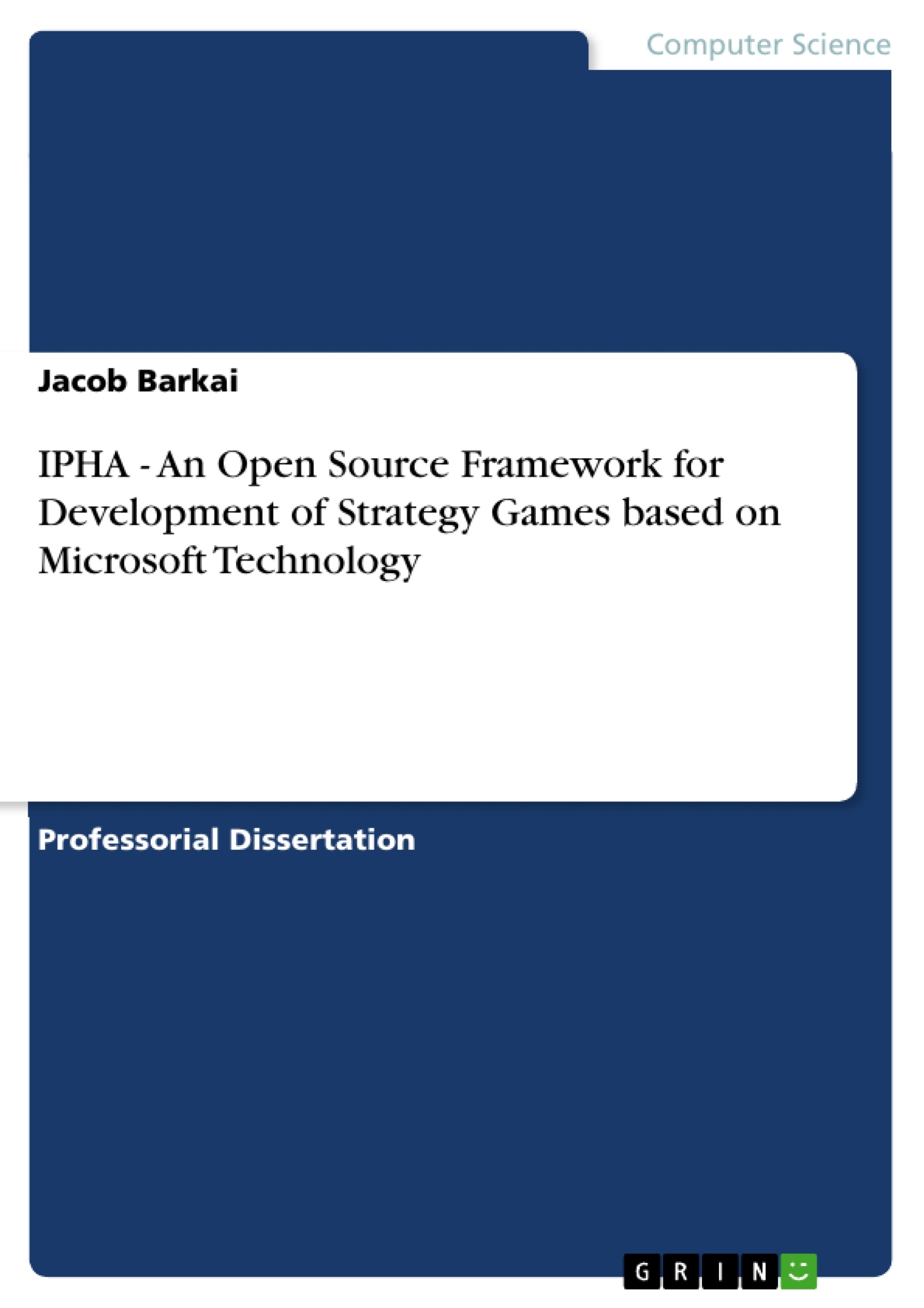Strategy computer games are nowadays a very popular and exciting genre in the world of computer games.
Many succeeding commercial games were developed since the end 1980's and contributed to the growth and interest in computer games in general and strategy games in particular. Games such as Command & Conquer™ series (by Westwood and EA Studios), Civilization™ series (by Sid Meier), Warcraft™ and StarCraft™ series (by Blizzard) entered to the computer games' hall of fame, thanks to their inventiveness, artificial intelligence challenge and visual effects that they offer.
Almost every strategy computer game was based on the idea of an "electronic board game", a modern brother to the classic, "physical" board games such as chess, checkers,
backgammon, hexxagon and more. An interesting issue is the fact that both the classic board games and the modern strategy computer games are sharing many of the key elements that
make the players think and act strategically and tactically, according to the development of the game.
This issue is the basis for the project, and discussed further in the next pages. It is common to divide strategy games into two main types: "Abstract strategy", where there is "perfect information" regard to the game's state. An example for an "Abstract strategy" is Chess.
The other type is "Concrete strategy" where there is "incomplete information" regard to the game's state. This characteristic makes the game more interesting and surprising. An example for such a game is "Stratego".
This project aims to serve as an open source code framework, written under Microsoft .NET, for easy creation and expansion of "abstract strategy" games by providing operational
artificial intelligence algorithms and well-defined class libraries based on concepts taken from "the game theory" for decision making aspects.
PLEASE NOTICE: This document contains the complete theoretic information regard the subject. Yet, the source code of the project is NOT part of the document as well as the API manual. Please contact the author regard this extra materia.
Inhaltsverzeichnis (Table of Contents)
- 1. ABSTRACT
- 2. PROJECT GOALS
- 3. INTRODUCTION TO STRATEGY COMPUTER GAMES
- 3.1 Tools and Technologies
- 3.1.1 The Microsoft .NET Framework
- 3.1.2 Available Literature
- 3.1.3 Overview of Existing Open Source Projects
- 3.2 Strategy Games Theoretical Concepts
- 3.2.1 Turn-Based Strategy Games: Classic Model Overview
- 3.2.2 Modern Approach for Turn-Based and Real-Time Strategy Games
- 3.3 Artificial Intelligence Algorithms and Concepts for Strategy Computer Games
- 3.3.1 Choosing the Right Algorithm
- 3.3.2 Theoretic AI Concepts
- 3.3.3 Algorithms
- 3.1 Tools and Technologies
- 4. FURTHER DIRECTIONS
- 5. BIBLIOGRAPHY
- 6. APPENDIX: THE IPHA API
- 6.1 Disclaimer for the code and the document
Zielsetzung und Themenschwerpunkte (Objectives and Key Themes)
This project aims to develop an open-source framework for creating strategy games based on Microsoft technologies. The framework, named IPHA, provides a foundation for developers to build complex strategy game mechanics, including turn-based and real-time gameplay. Key themes explored in the document include:- The evolution of strategy games from classical board games to modern digital implementations.
- The core concepts and principles of turn-based and real-time strategy games.
- The application of artificial intelligence algorithms for game AI development, including pathfinding, decision-making, and opponent behavior.
- The utilization of the Microsoft .NET Framework as a robust platform for game development.
- The importance of open-source contributions for the advancement of game development technologies.
Zusammenfassung der Kapitel (Chapter Summaries)
- Chapter 1: ABSTRACT: This chapter provides a brief overview of the project, introducing the IPHA framework and its purpose in facilitating the development of strategy computer games.
- Chapter 2: PROJECT GOALS: This chapter outlines the specific objectives and goals of the IPHA project. It emphasizes the creation of an open-source framework that leverages Microsoft technologies for game development.
- Chapter 3: INTRODUCTION TO STRATEGY COMPUTER GAMES: This chapter dives into the historical context and theoretical underpinnings of strategy games. It explores the evolution of game mechanics from classic board games to modern digital implementations, covering both turn-based and real-time strategies. It also examines the technologies involved, including the Microsoft .NET Framework and available open-source resources.
- Chapter 4: FURTHER DIRECTIONS: This chapter explores potential future directions for the IPHA framework, including the integration of new game features, advancements in AI algorithms, and the expansion of open-source contributions.
Schlüsselwörter (Keywords)
The main focus of this document lies in the development of an open-source framework for creating strategy computer games using Microsoft technologies. This encompasses concepts like turn-based and real-time strategy game mechanics, artificial intelligence algorithms for game AI development, the Microsoft .NET Framework, and the significance of open-source contributions in game development. The project, known as IPHA, aims to provide a robust foundation for developers to build complex and engaging strategy games.- Arbeit zitieren
- Jacob Barkai (Autor:in), 2009, IPHA - An Open Source Framework for Development of Strategy Games based on Microsoft Technology, München, GRIN Verlag, https://www.hausarbeiten.de/document/132539


